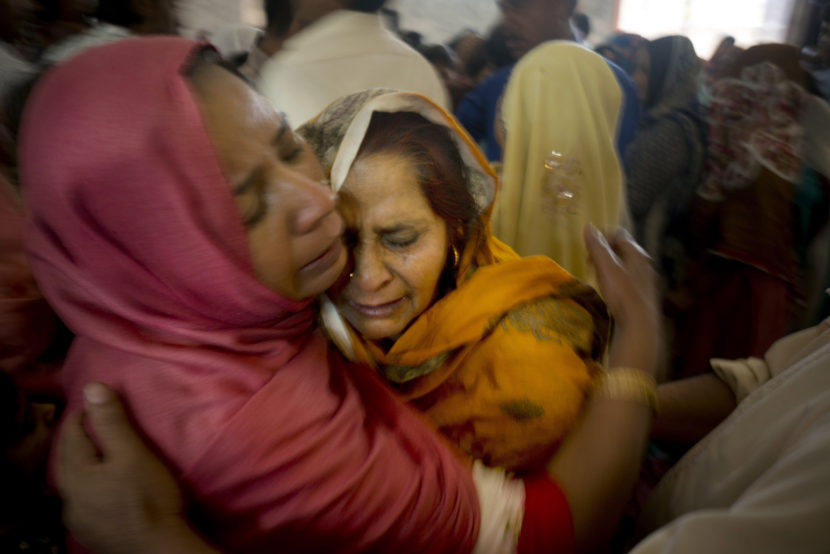
B.K. Bangash/AP
After a suicide bombing ripped through a crowded park on Easter evening in the city of Lahore, Pakistan has declared an official three-day mourning period. Meanwhile, authorities are trying to track down those responsible for the attack that killed at least 70 people.
A splinter group of the Pakistani Taliban, Jamaat-ul-Ahrar, has claimed responsibility for the attack. As we reported, a spokesman for the group said it was intended to target Christians.
Pakistani Prime Minister Nawaz Sharif visited victims of the attack in Lahore and later met with senior government officials, The New York Times reported.
“Our resolve as a nation and as a government is getting stronger, and the cowardly enemy is trying for soft targets,” Sharif said during the meeting, according to the Times. “Our goal is not only to eliminate terror infrastructure but also the extremist mindset, which is a threat to our way of life.”
NPR’s Philip Reeves was on the scene in Lahore’s Gulshan-e-Iqbal Park on Monday. Here’s how he described it on Morning Edition:
“I’m looking at a merry-go-round, and behind that another merry-go-round, and lots of other fairground fixtures. Brightly colored, in yellows, reds and blues, which are here for families of the city to bring their kids to enjoy. And that’s evidently what people were doing yesterday afternoon when the bombers struck.”
Philip spoke to 25-year-old Sajid Ali, a professional cook, who witnessed the aftermath of the bombings. “When I got near it, I could see a lot of injured people, and my friends and I started rescuing those injured. And after half an hour, police and rescue teams started arriving,” Ali said. He added that the blast “was so big that the plumes of smoke were rising above these trees.”
Gen. Asim Bajwa, a spokesman for Pakistan’s military, said Pakistani services carried out five operations in an effort to capture militants. In a Facebook post, Bajwa claimed that authorities have arrested “terrorists and facilitators” and confiscated a “huge cache of arms and ammunition.” He did not provide details or clarify their relationship to the Lahore attack.
Since 2014, Philip says, the Pakistani military has been carrying out a major offensive against Islamist militants, which had meant a dip in militant attacks.
“There was this feeling that perhaps suicide bombings would become a thing of the past,” university lecturer Ammar Jan told Philip. “But I think it’s hit us home last night that the war is very much an ongoing effort — and who knows whether we’re winning or losing this war.”
9(MDEwMjQ0ODM1MDEzNDk4MTEzNjU3NTRhYg004))
